Five Folksongs in Counterpoint (1951), Florence Beatrice Price
Details
Description
SKU: S0.249585
Composed by Florence Beatrice Price. Arranged by Edited/Transcribed by Apollo Chamber Players (2015). 20th Century,Gospel,Spiritual,Folk,Americana. Score,Set of Parts. 108 pages. Published by Apollo CP (S0.249585).While researching works by African-American composers to include in a program of Henry Thacker Burleigh, Dvorak, and a new commission by Libby Larsen, we came upon this previously unearthed string quartet by FLORENCE B. PRICE collecting dust in the University of Arkansas Public Library. It came with no score and in manuscript form, and it required editing. Over the course of 30+ hours, I used Finale notation software to create a score and parts, which is what's available for purchase here.
We fell in love with this piece, each of the movements reflecting the hardship and celebration of African Americans. Beautiful, touching music. As Dvorak evangelized: 'Spirituals are the basis of a new American school of music.' We hope you enjoy learning and performing this wonderful work.
-Matthew J. Detrick, Artistic Director, Apollo Chamber Players
FIVE FOLKSONGS IN COUNTERPOINT - Program note by Dr. Rae Linda Brown
In her career, Price appears to have written two string quartets. One quartet was titled “Negro Folksongs for String Quartet”, composed in ca. 1949 or 1951, and included settings of four familiar spirituals: Go down, Moses; Lil’ David play on your harp; Somebody’s knockin’ at yo’ door; and Joshua fit de battle of Jericho. Her quartet “String Quartet on Negro Themes” was premiered at Carey Temple Church in 1951 but its contents were not indicated in any program. It may well be that these two works are one and the same quartet.
The other string quartet, ultimately titled “Five [Negro] Folksongs in Counterpoint” may have been written as early as 1927, though the manuscript includes a final date of 1951. The work seems to have changed names at least three times and it is likely that its contents changed over this span of time as well. The work various appears as “Five Negro Folksongs in Counterpoint,” “Five Folksongs in Counterpoint,” and “Negro Folksongs in Counterpoint.” It appears that the original title of the present work was “Negro Folksongs in Counterpoint” and probably included only the three spirituals: Calvary; Shortin’ Bread; and Swing Low, Sweet Chariot. When the American folksongs not of African American origin, “Clementine” and “Drink to me only with thine eyes” were added, the word “Negro” was erased on the manuscript, or nearly so. It is still legible and included in the title in quotation marks. That the word “Negro” was included is a testament to the Price’s ode to her African American heritage and roots in the south.
Five Folksongs in Counterpoint is a work for accomplished players. Technically challenging, the texture throughout the work is contrapuntal, that is, voice against voice, and conveys to the listener the serious treatment of these songs. The familiar melodies are shared between the instruments equally; in between thematic phrases is freely interpolated material. A convincing interpretation of these folksongs requires a flexible approach to the execution of the rhythms and an understanding of the subtle, but fluid, phrasing (now detached, now slurred even though it may not be marked in the score).
Referring to the site of the Crucifixion, the tune "Calvary" is often sung during the season of Lent. Price states the ominous tune at the outset in the violins and it is woven throughout the quartet’s voices, sometimes in fragments, but it always audible. The spiritual is at its most poignant when in the lower strings
"Clementine," the tongue-in-cheek American ballad, in a lively arrangement, is about the unfortunate demise of a girl who gets a foot splinter, falls over, and drowns. Seemingly simple in the beginning, this movement is anything but straightforward. The shimmering strings at the end humorously capture love lost and quickly forgotten.
"Drink to me only with thine eyes" is given hymn-like treatment, a familiar texture that Price uses in many of the slow movements of her instrumental music. This lovely arrangement includes rich texture and quite distinct glimpses of her interest in Impressionistic composers.
In "Shortin’ Bread," Price reveals that her music never strays far from her southern roots. In this case, she captures the inherent dance rhythms in the plantation folksong’s lyrics “Mammy's little baby loves short'nin', short'nin', Mammy's little baby loves short'nin' bread.” “Shortnin’ Bread” is the quartet’s shortest and most contrapuntal movement.
It is commonly thought that the lyrics of this spiritual, “Swing Low, Sweet Chariot, coming for to carry me home,” refers both to the Underground Railroad, the freedom movement that helped blacks escape from Southern slavery to the North and Canada and, alternatively, to the slaves escape from slavery through death and heaven’s deliverance. Dramatically, Price gives to solo cello the weighty tune. It is then treated in turn by the viola, violin II and finally violin I. Ultimately, the tune is given contrapuntal and rhapsodic treatment during which the spiritual is obscured completely. The movement concludes with an expansive rendition of the well-known tune, sometimes suggesting the minor mode, but triumphantly ending in the major key.
– Rae Linda Brown, Ph.D. Associate Provost, Loyola Marymount University Los Angeles, California
Digital Downloads are downloadable sheet music files that can be viewed directly on your computer, tablet or mobile device. Once you download your digital sheet music, you can view and print it at home, school, or anywhere you want to make music, and you don’t have to be connected to the internet. Just purchase, download and play!
PLEASE NOTE: Your Digital Download will have a watermark at the bottom of each page that will include your name, purchase date and number of copies purchased. You are only authorized to print the number of copies that you have purchased. You may not digitally distribute or print more copies than purchased for use (i.e., you may not print or digitally distribute individual copies to friends or students).
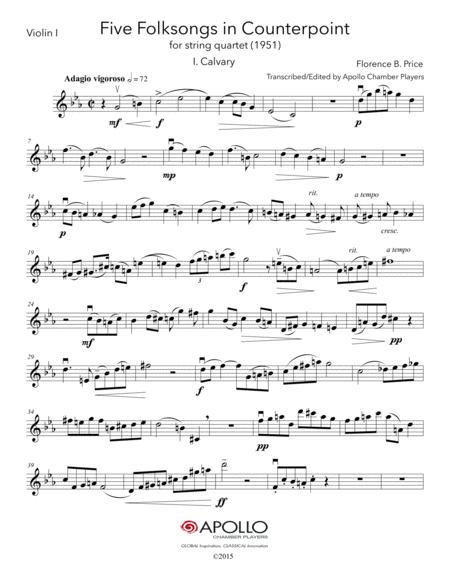
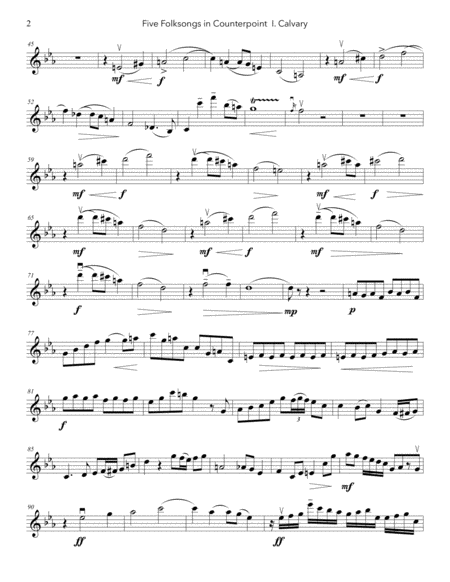
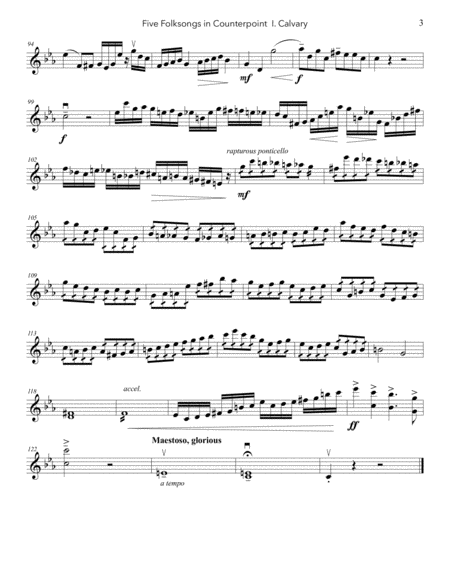
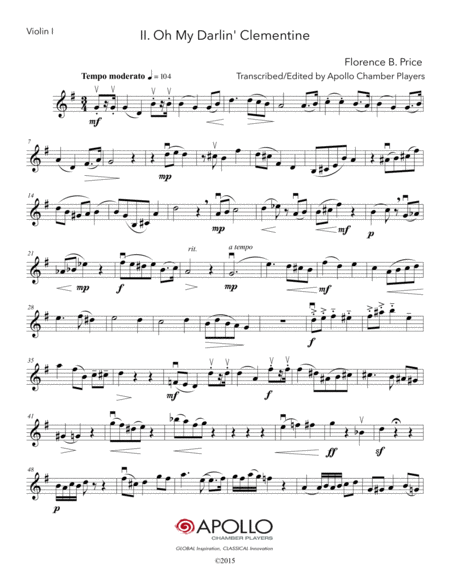
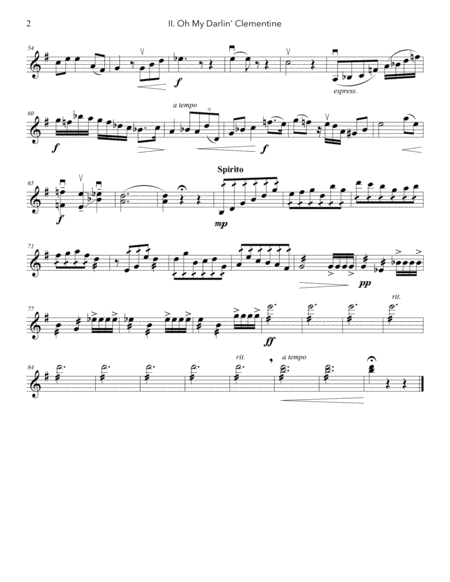
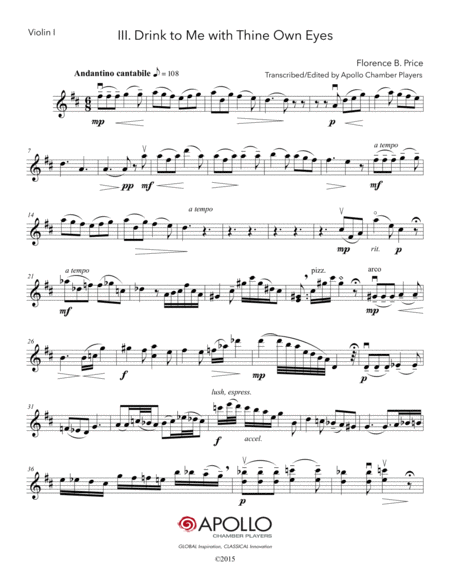
 Share
Share